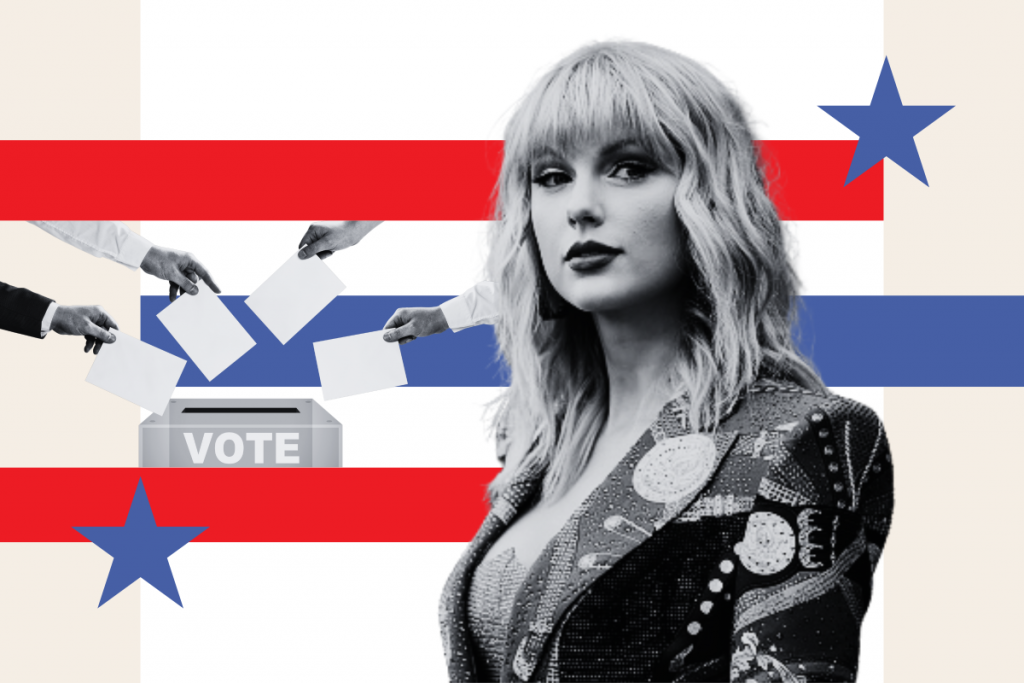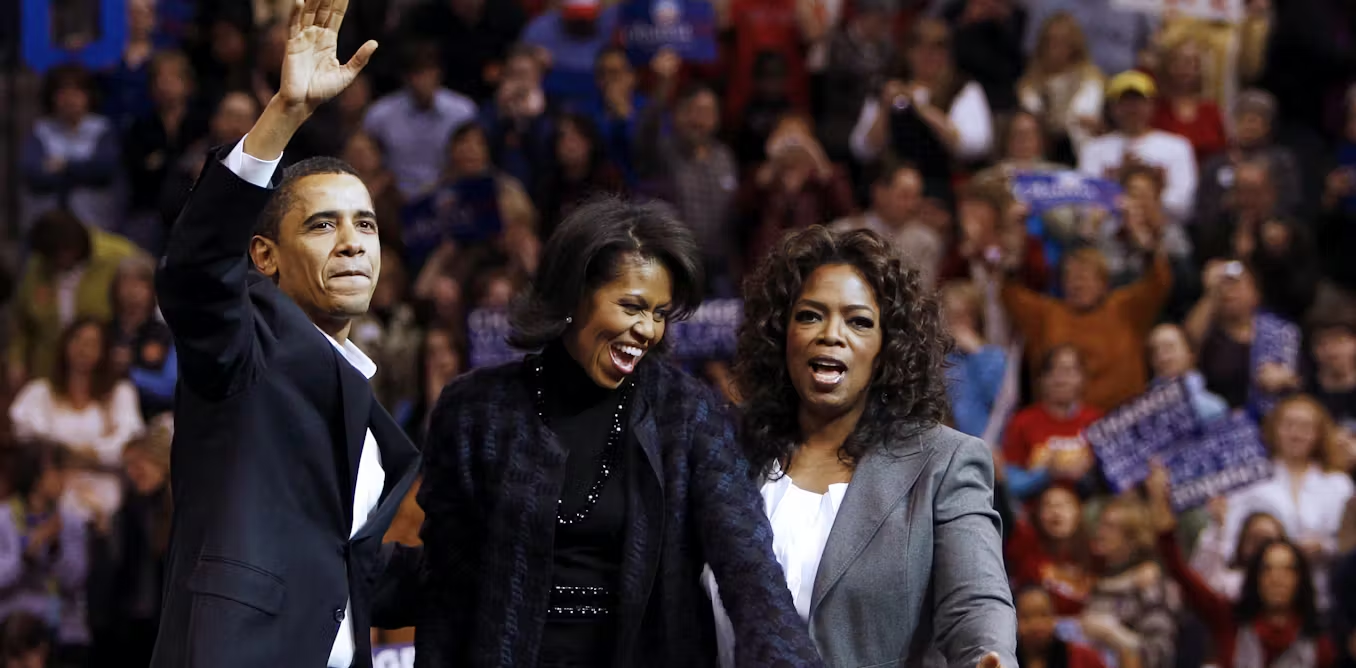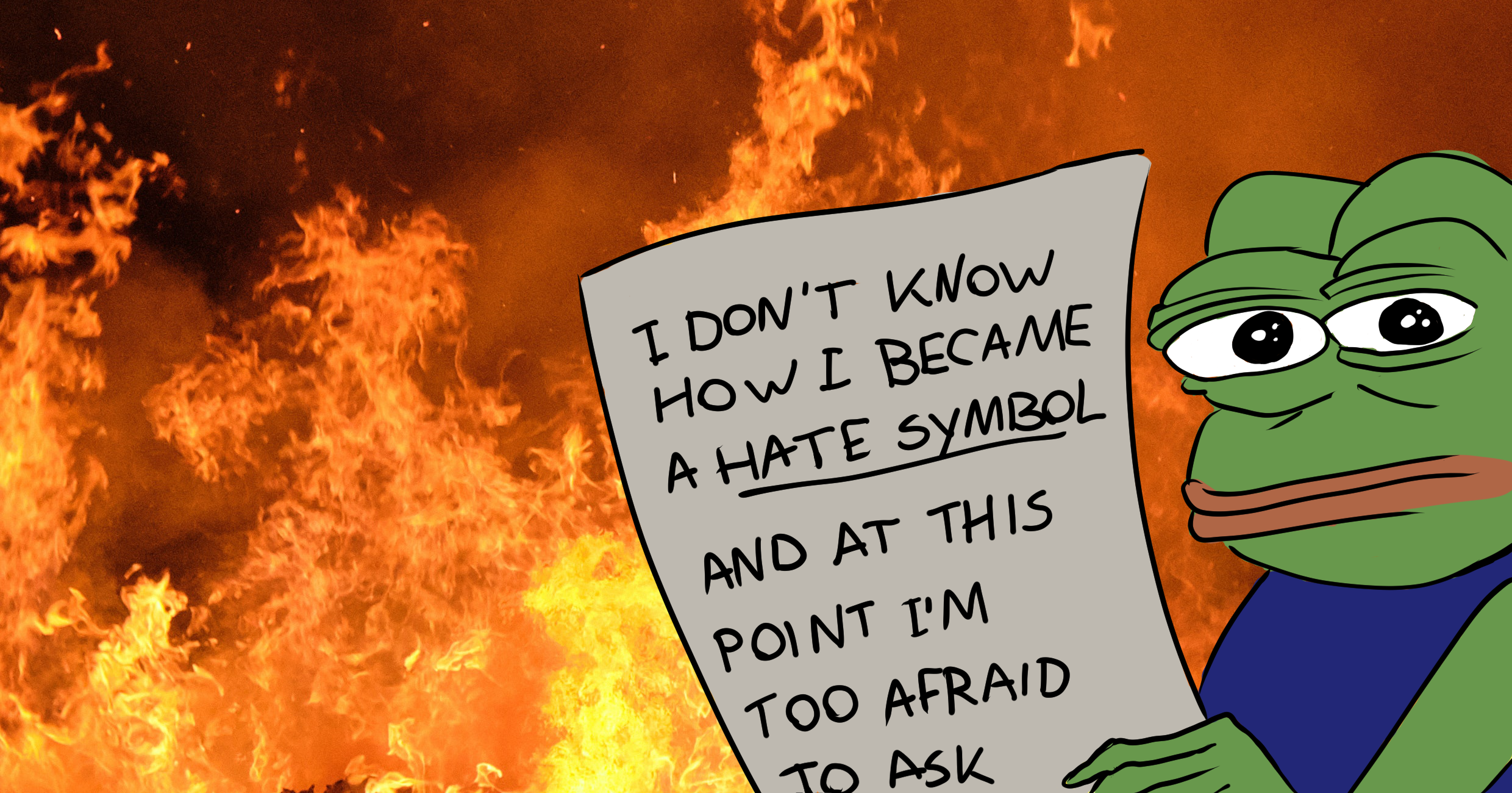When there is someone that does not know about the 2024 elections of America it will be me. Although America is a big western country with a lot of power it differs a lot from the political system we are known with in Europe. With the elections coming up my instagram, tik tok and other social media platforms are exploding. Big celebrities like Elon Musk and Taylor Swift are active on posting about the event and even have been highly vocal about their political stance. The positive side of it is that it gives notice that you should vote at a younger age, which I think is really good. But everything has a downside. Should these figures have this much influence on (young) people? Do they have the right to lecture the public even though they probably don’t even know anything about it?

source: Newsweek
The Power of Celebrity Voices
There’s no denying the impact celebrities have on shaping the opinion of the public. With millions of followers on platforms like Instagram, TikTok, and X amplify their voices, making that even a casual post about voting can turn into a viral movement. Taylor Swift, for example, has been praised for encouraging young people to vote, which in the United States is a big leap. This kind of influence is valuable because the voter turnout among young people is often way lower than older demographics. When I turned eighteen I had no idea what to vote for, so I did a “stemwijzer” and my prejudices were that American youth would base this on celebs. It turns out this is not true.
The Limits
However, despite the visible influence on voter participation, studies suggest that celebrity recommendations don’t necessarily persuade political decisions. A Harvard study noted the power of these voices in promoting voting, but a USA TODAY/Suffolk University poll found that voters aren’t deeply influenced by figures like Beyonce or Kim K when choosing candidates. Instead, political figures like Barack and Michelle Obama have a more significant impact on voters’ political choices.
For instance, 18% of voters stated former President Barack Obama’s endorsement mattered significantly, while 14% said the same for Michelle Obama. These numbers reflect that voters prioritize political expertise over celebrities when it comes to making political decisions.

source: The conversations
Conclusion
While celebrities can boost participation and raise awareness, their political endorsements often don’t directly have results. This balance shows that while they have a right to express their views, the public should critically evaluate these opinions, ensuring that their political choices are well-informed. Like comedian Ricky Gervais said in his speech at the Golden Globes about celebrities, ‘You’re in no position to lecture the public’. Well, he is completely right. They don’t, but luckily they do not have that much political influence on the Americans. Luckily.
Sources:



Thanks for your blog and the study! With all the coverage of celebrities speaking out in favor of Harris or Trump, I’ve always wondered whether this has any influence at all.
I’m probably also very happy with the result that what celebrities say doesn’t have much direct political influence. I’m a little undecided because I was very happy when it was reported that Taylor Swift was speaking out in favor of Harris. However, when Musk even started showing up at Trump’s campaign rallies, I began to question the moral right of celebrities to make endorsements for political candidates. This shows me that my opinion on the subject was probably very much dependent on my political attitude towards the candidates being promoted. And if I try to think about it theoretically, I’m probably more in line with Ricky Gervais. Nevertheless, I think it’s very good when celebrities call on people to vote (without saying for whom), because it’s also a matter of democratic theory.
I appreciate the thought-provoking points you raised in this article. In my previous post(https://reurl.cc/jy0091), I discussed how politicians might repurpose celebrity political advocacy as another form of media content. I feel that modern politics is so intertwined with the online environment that it’s often difficult to distinguish fact from fiction. Younger voters, in particular, may not always have the awareness needed to differentiate between truth and misinformation, which raises genuine concerns for the health of democratic politics.
I always thought it was so strange that celebrities are so included in politics in the US! This is not really the case in the Netherlands, and I feel like it makes the US elections look even more like a sort of game show. It’s reassuring that most voters don’t seem to base their decision on celebrity opinions, but I feel like this might become a bigger challenge in the future, because the influence of social media (and therefore the influence of celebrities) continues to grow.
Interesting post, given recent events it is quite interesting to read this blog and think about what roles celebrities played in this year. Like you stated in your conclusion, the actual influence of celebrities in presidential elections is not significant enough to cause a difference. However, I wonder if the idea of celebrities/fame does in fact influence elections in a different manner. Perhaps it is the candidate themselves that needs to project this sort of celebrity persona to grab votes. At least in the case of the USA, it is hard to comprehend the success of Trump’s campaign from anything other than a social and theatrical standpoint. It is hard to state what exactly weighed into the results, but perhaps it is the chracter that Trump created, a celebrity like kayfabe, along with his power and fame what influenced people to vote for him.